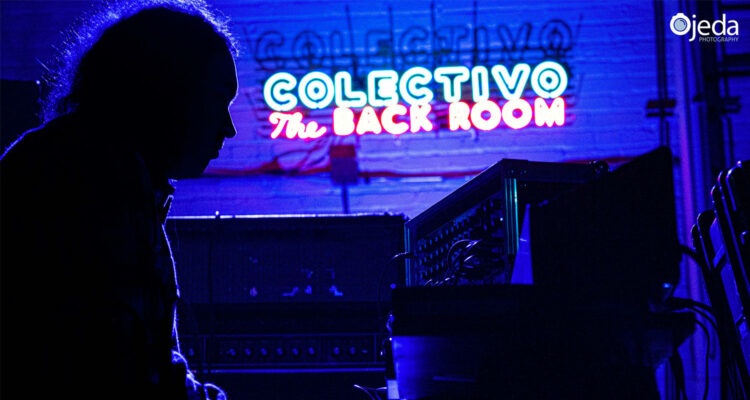It’s time to say farewell to The Back Room @ Colectivo. The performance space on Prospect Avenue opened up in 2015 and has served as a great intimate space for local and traveling acts for almost a decade, but The Pabst Theater Group, which operates the venue, is shutting it down to make way for Vivarium, a new venue on Farwell Avenue just a few blocks from Colectivo with about double the Back Room’s capacity. Vivarium will start hosting shows in February; the Back Room just hosted its final performance Friday night, a terrific sendoff courtesy of Chicago’s Bitchin Bajas.
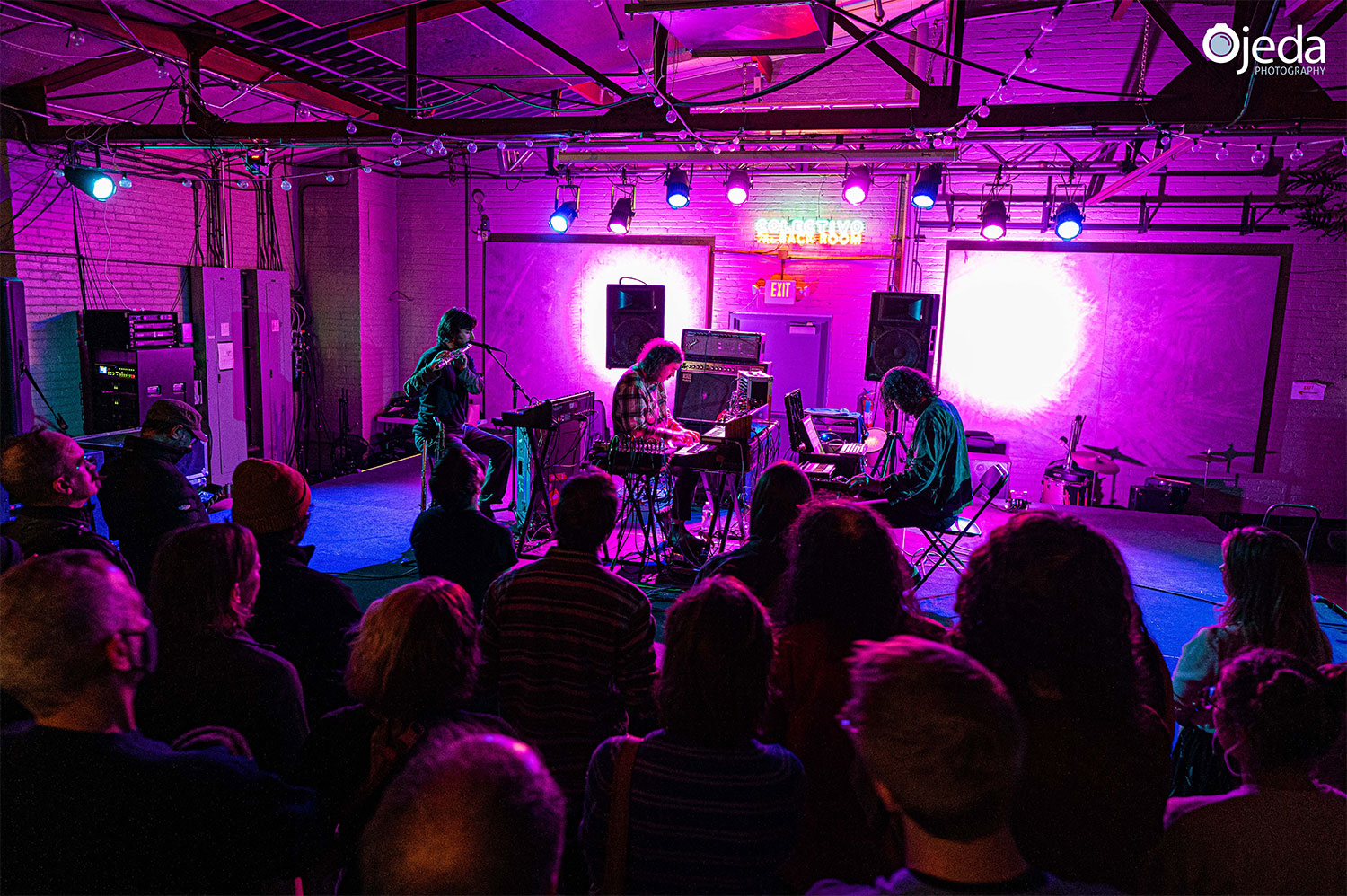
Starting the night off were Drag City labelmates Glyders, a trio also based in the Windy City. Their first few songs were very conventional, low-key indie rock; they came off like an ’80s proto-grunge band whose overdrive pedals weren’t working, not exactly in line with the typical Drag City weirdness. As the set wore on and the crowd grew, though, a lot more influences sprinkled in, from Can to Devo to the Meat Puppets, guitarist Joshua Condon keeping his tone pretty clean for the most part except a few tasty wah-wah solos. The band showcased a remarkable chemistry as song structures got more adventurous; there was improv, but without the slightest hint of showing off, Eliza Weber’s viscous bass work coming to the fore on slow grooves as well as the more upbeat jams. Glyders’ records barely hint at the energy they can build up when they get rolling.
If you’ve heard Bitchin Bajas on record, though, you have a pretty good idea what you’re in for with the live show, although their actual music is much less formally structured than most. Also a three-piece, Bajas aren’t a rock band; you might make out some guitar sounds here and there during their songs, but the guys create most of their sounds via arrays of keyboards and electronic gadgetry. Cooper Crain, who started Bajas in 2010 as a solo offshoot of his primary group Cave, took center stage Friday night, flanked by Cave bandmate Rob Frye to his right and Daniel Quinlivan (formerly of Mahjongg) to his left. The set started off on a simple synth groove, Frye embellishing on saxophone, the music swelling via loops and the addition of minimal percussion. Eventually the rhythm took over and one could imagine a sea of raver kids going nuts as the tension built to a peak. Only one key ingredient was missing: booming bass.
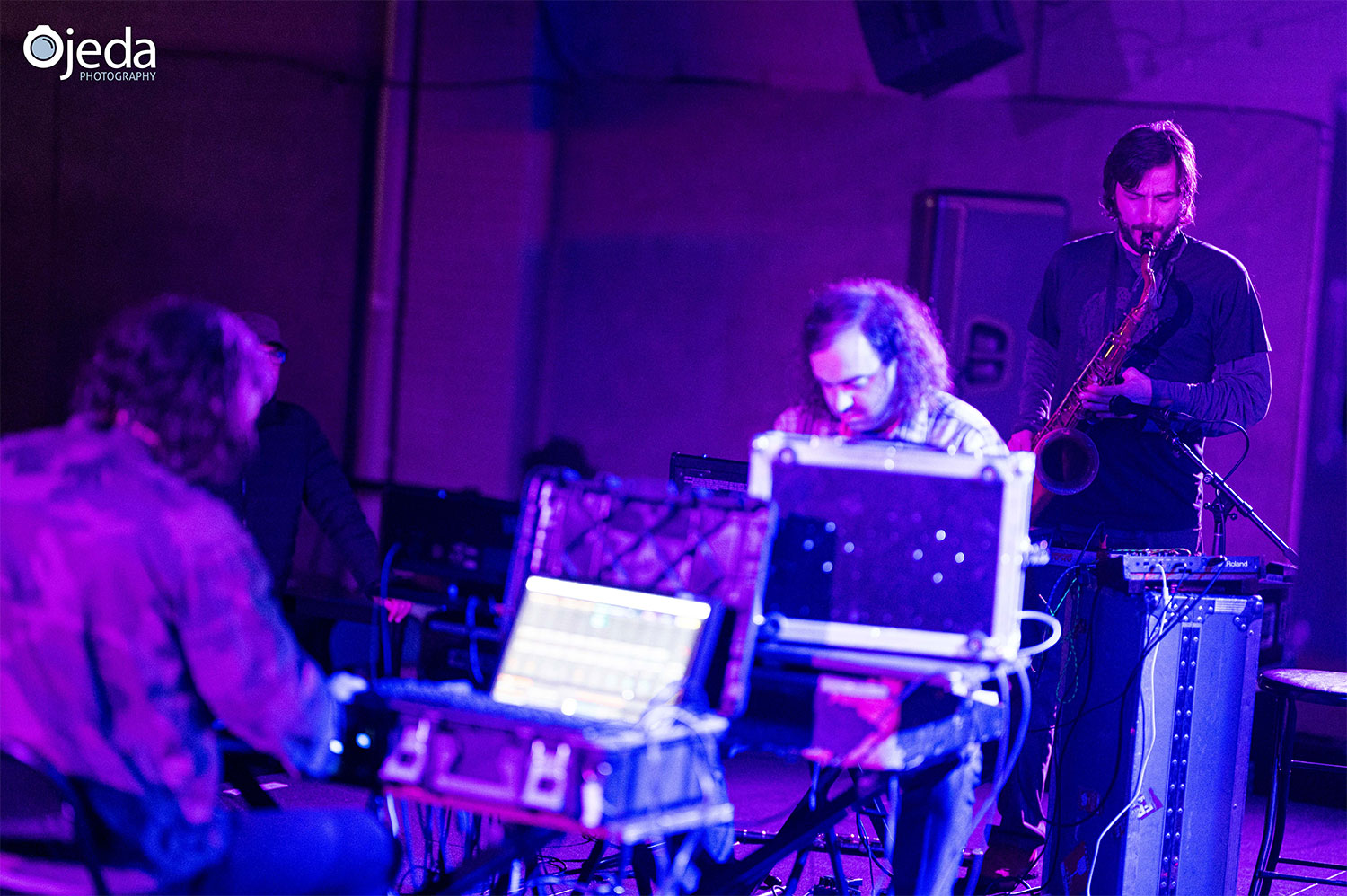
Although Bajas make instrumental music that sometimes bumps up against EDM, the overall intensity is toned way down. When there’s percussion it’s generally understated, and the music overall tends to dwell in the mid and upper ranges rather than the low end. The effect is more serenely psychedelic than danceable, the beat more implied than pounding, so the crowd doesn’t generally get very mobile. With three different musicians combining their separate samples and sounds, the beat needs to be malleable in case there’s confusion when themes blend together. In the early days of this trio, those transitions could sometimes result in awkwardness, but there were no clunky moments on Friday night.
There also weren’t any moments where the roof was in any danger of being blown off. If there’s a criticism to be leveled at the Bajas, it’s that they’re too mellow. As the second song got rolling with flute and the retro synth patterns, there were major Jan Hammer vibes pervading—maybe not quite “new age,” but not a far cry off. Bajas’ trick is never letting the pulse die out, keeping even the most subdued sounds flowing so the mind never gets bored. Their most obvious antecedent is Steve Reich, whose groundbreaking minimalism echoes throughout most of Bajas’ basic song cores. However, Frye’s sax and flute playing was much more prominent Friday night than at past Milwaukee performances, always providing a jazzy reference point amidst the otherwise meditative proceedings.
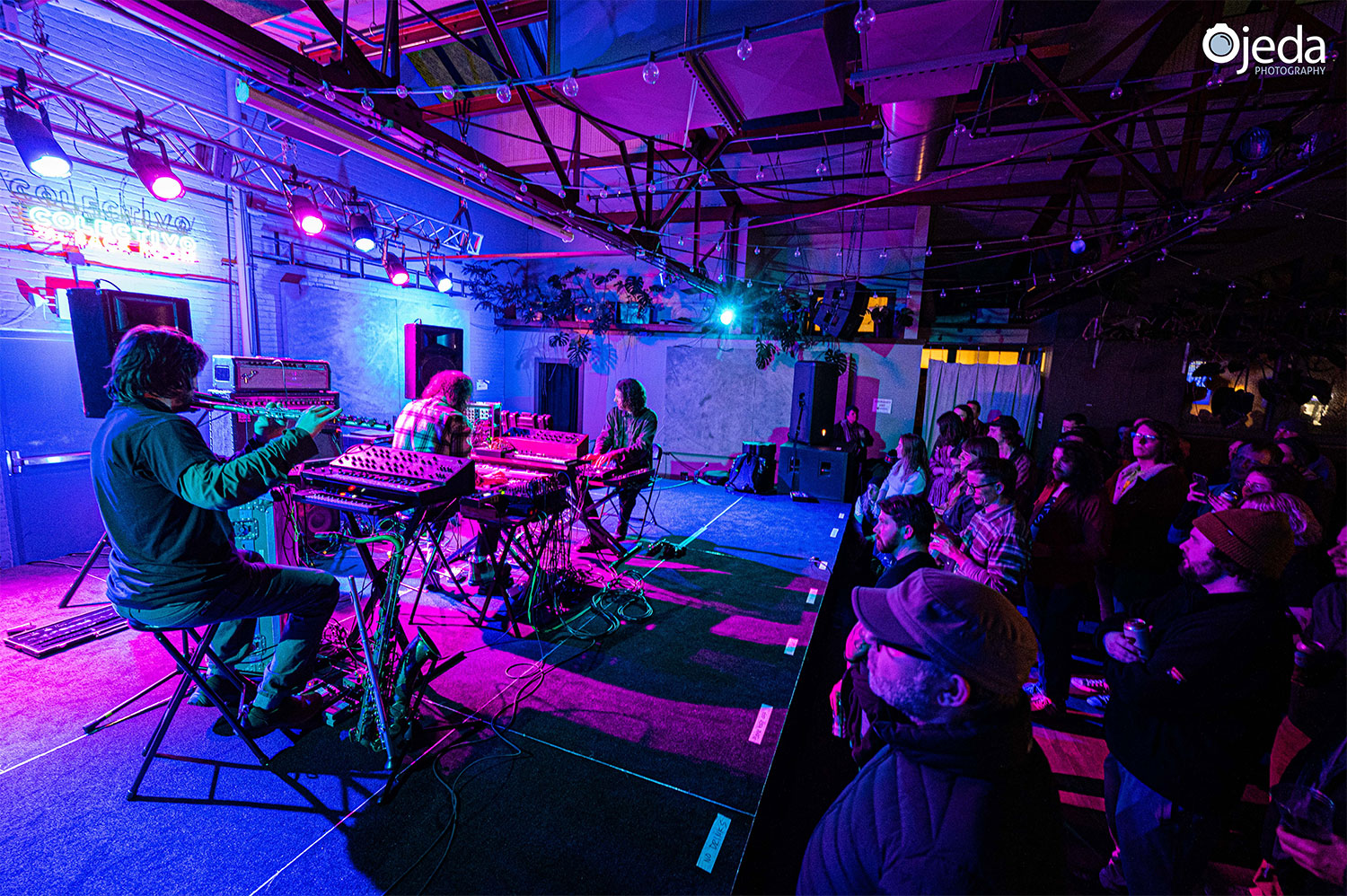
Bajas make immersive rather than striking music; Friday night’s set often felt like being transported into the background of a low-stakes Wes Anderson film, whimsical almost to a fault, but it was never boring, actually more eclectic and restless than a typical Bajas set, and the penultimate tune they played rose to an impressive blissful climax. When it was over, Crain made mention of the Back Room’s closing, and the band then concluded with a brief, serene sax-led piece. The music wasn’t necessarily sad, but this gentle comedown served as a fine requiem for the beloved East-side venue.
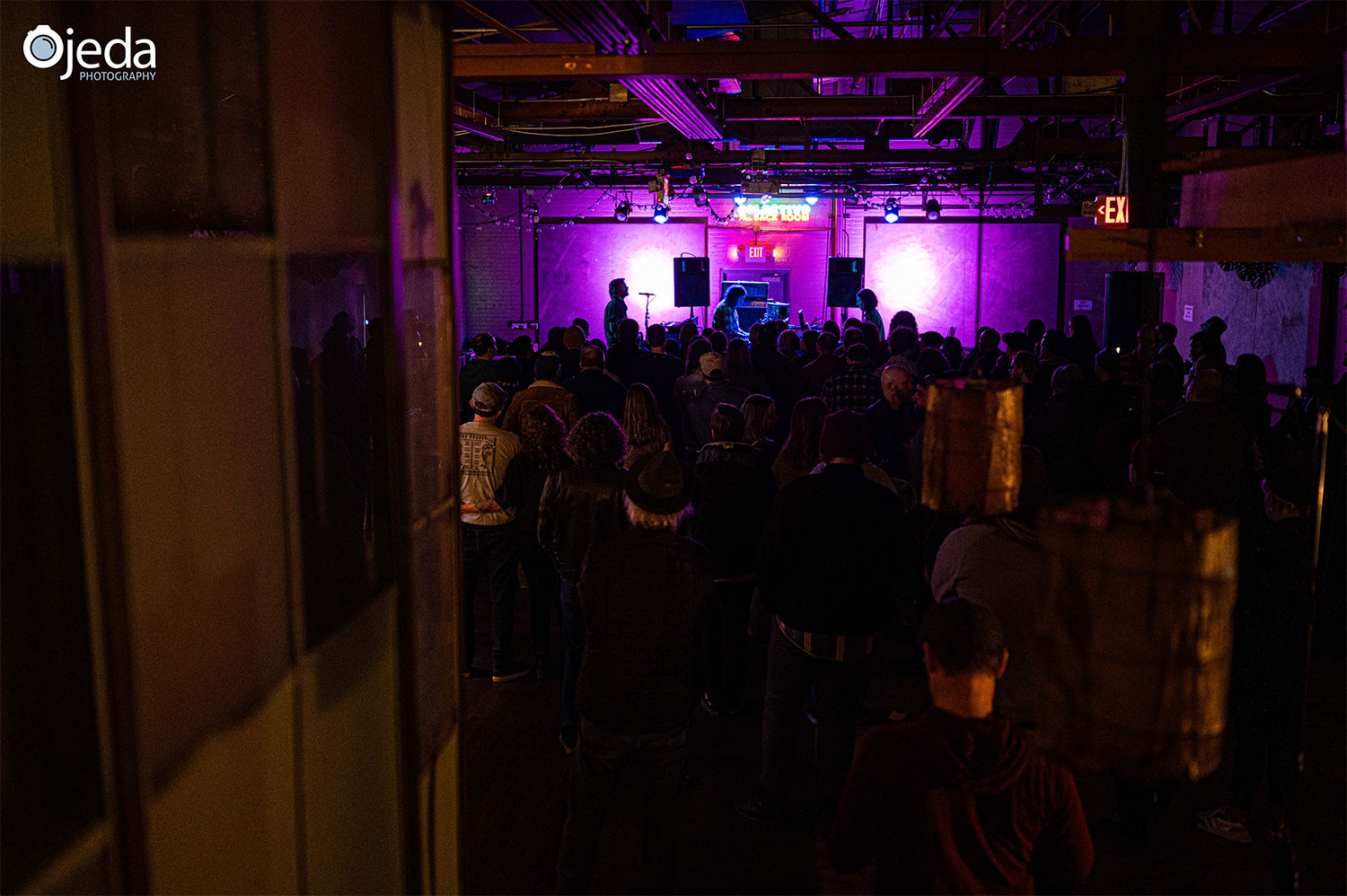
Want more Milwaukee Record? Subscribe to our free weekly newsletter and/or support us on Patreon.
RELATED ARTICLES
• Pabst Theater Group introduces new 450-seat venue, to be named Vivarium
• Pabst Theater Group opening new East Side venue, leaving Back Room @ Colectivo

